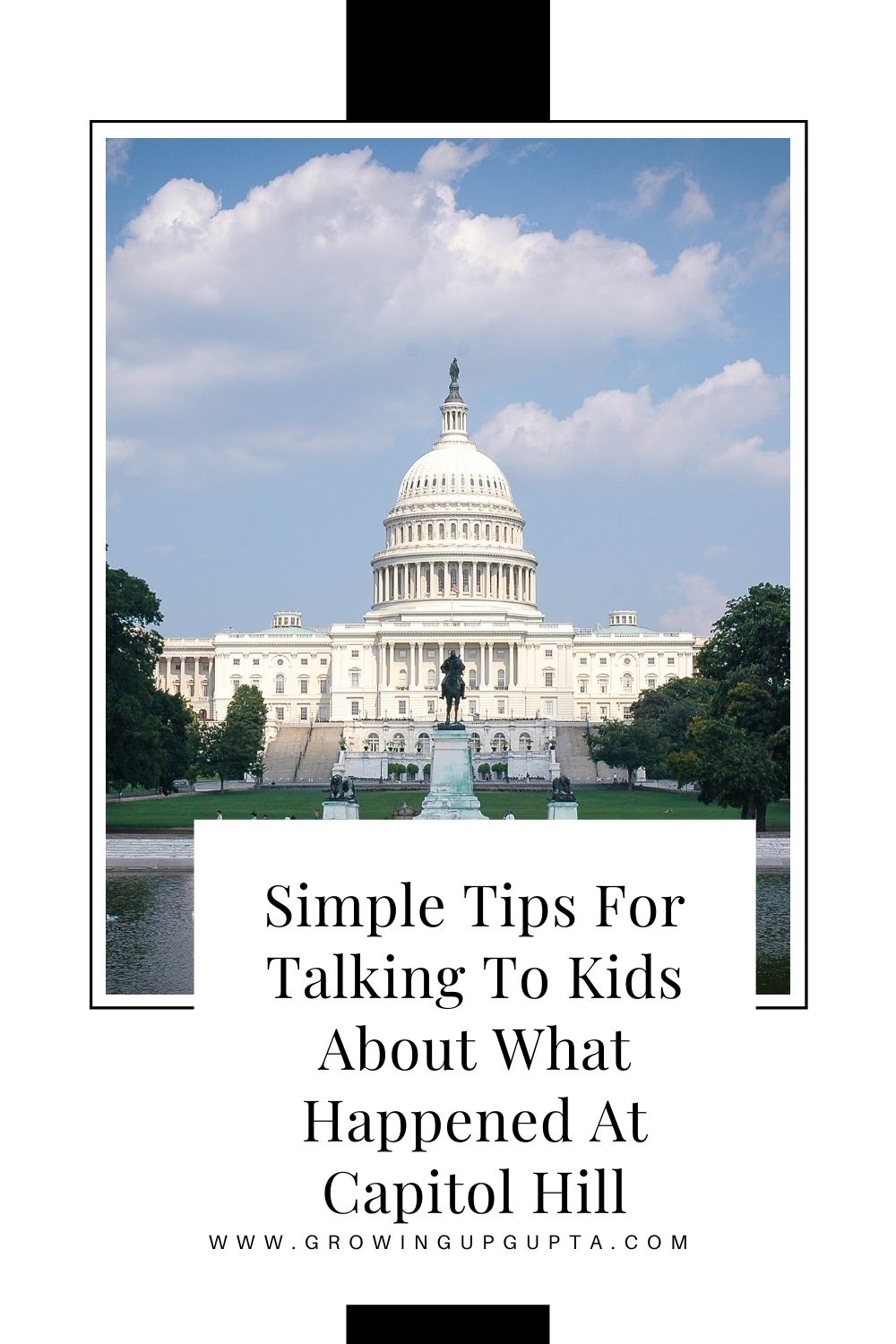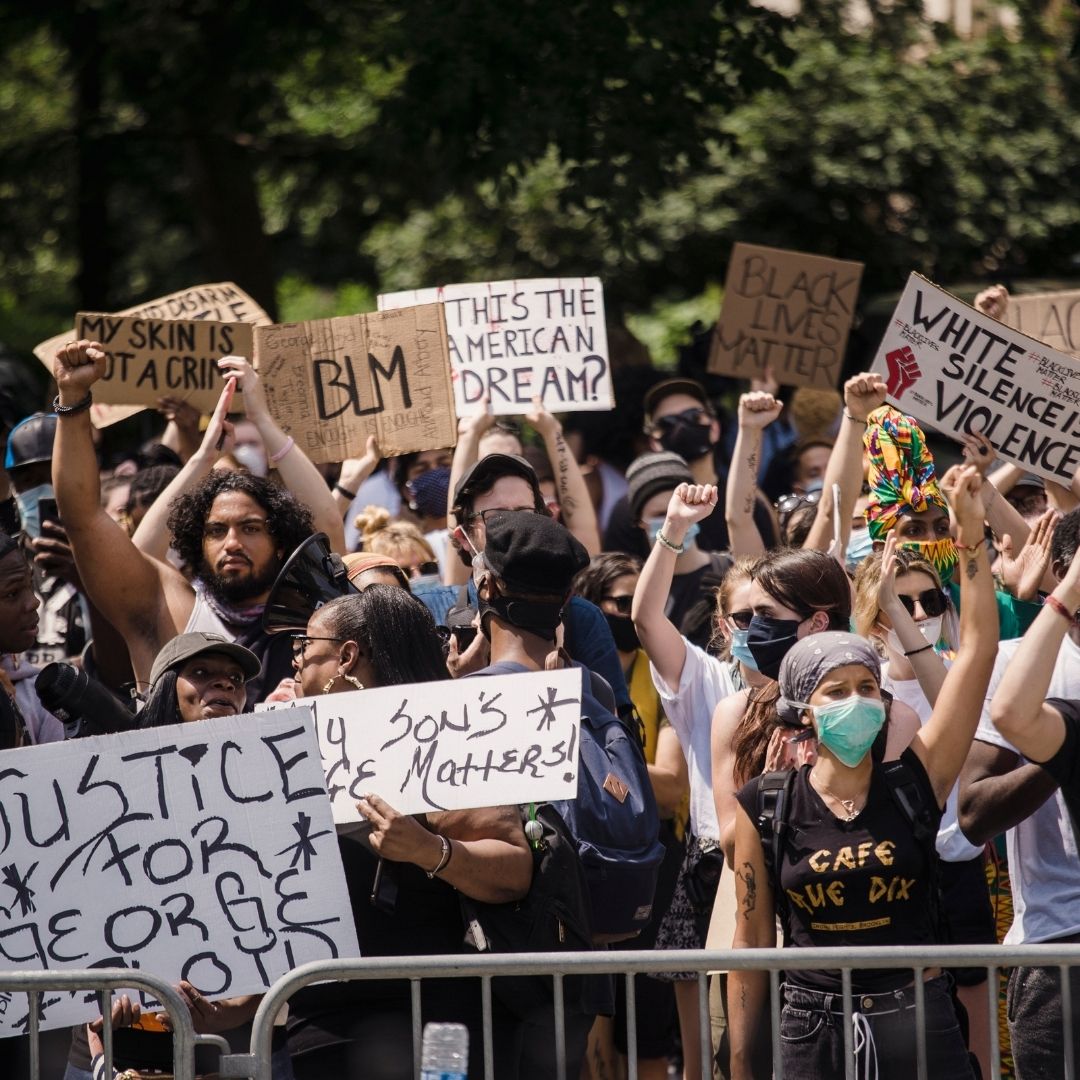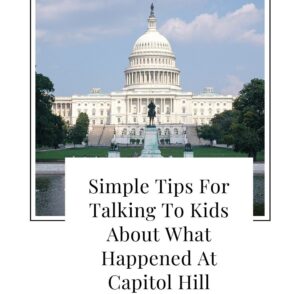
Simple Tips To Talk To Kids About What Happened At Capitol Hill

Simple Tips To Talk To Kids About What Happened At The Capitol Hill
January 6th, 2021, will be embedded in our minds as the day that the US democracy was threatened, and our own citizens made a violent attempt to disrupt the fabric of our constitution. While most children are aware of these harrowing events, it is crucial to maintain healthy discussions surrounding the stability and safety of the government and its citizens.
As we approach Black History Month, it is increasingly important for parents to talk with their children about what happened at the Capitol. In the wake of the Black Lives Matter Movement, police brutality, and the plethora of social issues that still subsists, parents are faced with the rawness of having difficult talks with their children. As challenging as it is/may be to have these conversations, they are necessary. What is the best approach? The best approach is different for each family. Nonetheless, the first step is to start having discussions. With that said, here are several tips to help guide parents in commencing this dialogue.

Safety First
Make sure to validate children’s feelings of anxiety or frightfulness and reiterate that they are safe. Now maybe a good time to create or review a safety plan to address severe and immediate threats. For guidance, parents can visit ready.gov for tips on getting started. It’s also important to discuss in detail, especially with older children, about the importance of being mindful of their surroundings and how their actions or presence can be perceived as a threat due to racial prejudice.
Allow Them To Vent
Providing a safe and judgment-free space for children to express their emotions is necessary and helpful. This is a good opportunity to gain an understanding of how they viewed the events that occurred. And it so helps parents to provide more clarity and context to what happened. If your children need more support, additional tools can be found here.
Provide Historical Context
Now maybe a good time to have a history lesson and age-appropriate conversations about this country’s social issues that are rooted in slavery, systemic oppression, racism, and more. Here are some useful movies and books to educate children.
Maintain A Routine And Limit Screen Time
Too much of anything can be a bad thing. Even adults have to step back from the never-ending news coverage of politics and social issues. Limiting news coverage and social media will help mitigate confusion, misinformation, strong emotional reactions, and imitating events that could be dangerous or harmful to themselves and others. Again, be mindful of your children’s ages and ensure that you are gauging their screen time and information consumption.
Don’t Hold Back
Being honest about the reality of what happened is essential. Don’t be afraid to tell the truth, and call out the bad behavior that occurred. Explain to children how this behavior results from differences in opinion and how some people express themselves with anger when they feel they have lost control.
This is also a good time to have sensitive conversations about race and privilege as it pertains to the drastic differences in response by law enforcement handling the rioters versus the Black Lives Matter protests.
These tips are just a few ways to help both you and your children cope with the outside world and what’s going on around them. It may also be helpful to discuss ways in which everyone can contribute to improving this country. Here is a guide to help aid in discussing healthy ways to exercise your freedom of voice, voting, and advocating for positive change.
What tips would you add to this list? Comment below! Find us on Instagram and Pinterest @growingupguptas and on Twitter @growingupgupta.
Pin this post for later here!

Are you following us at www.growingupgupta.com yet? Find us on Instagram and Pinterest @growingupguptas and on Twitter @growingupgupta, Facebook @growingupguptablog.
This post contains affiliate links that support the operation of this blog!






















